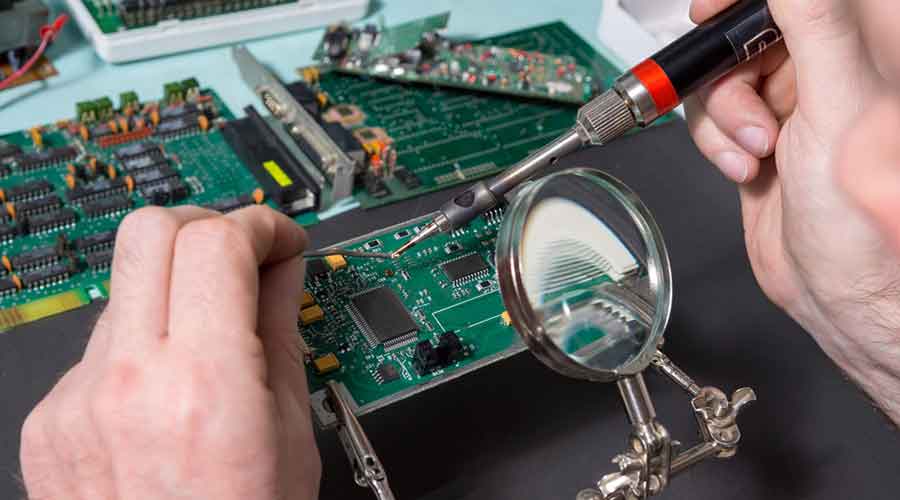The semiconductor crunch that has battered the auto sector leaves carmakers with a stark choice: pay up, stock up or risk getting stuck on the sidelines as chipmakers focus on more lucrative business elsewhere.
Car manufacturers, including Volkswagen, Ford and General Motors, have cut output as the chip market was swept clean by makers of consumer electronics such as smartphones — the chip industry’s preferred customers because they buy more advanced, higher-margin chips.
The semiconductor shortage — over $800 worth of silicon is packed into a modern electric vehicle — has exposed the disconnect between an auto industry spoilt by decades of just-in-time deliveries and an electronics industry supply chain it can no longer bend to its will.
“The car sector has been used to the fact that the whole supply chain is centred around cars,” said McKinsey partner Ondrej Burkacky. “What has been overlooked is that semiconductor makers actually do have an alternative.”
Automakers are responding to the shortage by lobbying governments to subsidise the construction of more chip-making capacity.
In Germany, Volkswagen has pointed the finger at suppliers, saying it gave them timely warning last April - when much global car production was idled due to the coronavirus pandemic — that it expected demand to recover strongly in the second half.
That complaint by the world’s No.2 volume carmaker cuts little ice with chipmakers, who say the auto industry is both quick to cancel orders in a slump and to demand investment in new production in a recovery.
“Last year we had to furlough staff and bear the cost of carrying idle capacity,” said a source at one European semiconductor maker, who spoke on condition of anonymity.
“If the carmakers are asking us to invest in new capacity, can they please tell us who will pay for that idle capacity in the next downturn?”
Low-tech customer
The auto industry spends around $40 billion a year on chips — about a tenth of the global market. By comparison, Apple spends more on chips just to make its iPhones, Mirabaud tech analyst Neil Campling reckons.
Moreover, the chips used in cars tend to be basic products such as micro controllers made under contract at older foundries - hardly the leading-edge production technology in which chipmakers would be willing to invest.
“The suppliers are saying: ‘If we continue to produce this stuff there is nowhere else for it to go. Sony isn’t going to use it for a Playstation 5 or Apple for its next iPhone’,” said Asif Anwar at Strategy Analytics.
Chipmakers were surprised by the panicked reaction of the German car industry, which persuaded Economy Minister Peter Altmaier to write a letter in January to his counterpart in Taiwan to ask for more chips.
No extra supplies were forthcoming, with one German industry source joking that the Americans stood a better chance of getting more chips from Taiwan because they could at least park an aircraft carrier off the coast — referring to the ability of the US to project power in Asia.











